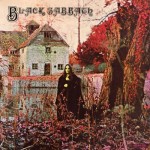Metal Monday: Classicism In Metal
posted in: Features • Rock
 Classic is a term used by people in the arts to define the highest standard of works; something that has withstood the test of time, something that has been inserted into the cultural canon. If we’re talking literature, we could use the Iliad or Odyssey as an example, or perhaps something more modern like The Adventures of Huckleberry Finn. These works undoubtedly shaped their medium since brought into existence. But what about classics in the world of metal specifically? Compared to most art forms, metal is still in its infancy, being somewhere around 40 years old now. Are there really any works that can be universally regarded as groundbreaking and genre-defining?
Classic is a term used by people in the arts to define the highest standard of works; something that has withstood the test of time, something that has been inserted into the cultural canon. If we’re talking literature, we could use the Iliad or Odyssey as an example, or perhaps something more modern like The Adventures of Huckleberry Finn. These works undoubtedly shaped their medium since brought into existence. But what about classics in the world of metal specifically? Compared to most art forms, metal is still in its infancy, being somewhere around 40 years old now. Are there really any works that can be universally regarded as groundbreaking and genre-defining?
Starting with the obvious, Black Sabbath‘s early albums have to be considered since they’re widely regarded as the forefathers of metal. What about their contemporaries and bands that came shortly after? Surely Motí¶rhead, Iron Maiden and others deserve consideration. For posterity, let’s just take the landmark works, Overkill and The Number of the Beast respectively. If we include Judas Priest, which of their works should be included? One approach would be the early work, something more landmark for less studied fans, but on the other hand Painkiller is one of the best metal albums of all time and quite a bit more aggressive than the band’s early material, making this a tough decision. The list of bands and albums goes on and on.
 Deciding the classics for each style of metal can be quite subjective, of course. A concept that all metal bands struggle with is how closely to mirror their own version of “the classics.” When you play heavy metal, do you imitate your influences? Do you try to find a new way to play heavy metal without sounding like your influences? Either way, you’ll be encountering metal fans who think you’re either a) a ripoff of some other band or b) are terrible because you’re not as good as your influences. So what should you do? Whatever you want. After all, that’s how we got here in the first place.
Deciding the classics for each style of metal can be quite subjective, of course. A concept that all metal bands struggle with is how closely to mirror their own version of “the classics.” When you play heavy metal, do you imitate your influences? Do you try to find a new way to play heavy metal without sounding like your influences? Either way, you’ll be encountering metal fans who think you’re either a) a ripoff of some other band or b) are terrible because you’re not as good as your influences. So what should you do? Whatever you want. After all, that’s how we got here in the first place.
More interestingly than how fans react to bands choosing to emulate (or not to emulate) their influences occurs when a band considered classic change up what they’re doing, despite the rabid outcries from their loyal fanbase (be it cries of “sellout” or “what happened to the band I love” or otherwise). Just ask my somewhat tired example of Morbid Angel or Metallica. Morbid Angel were one of the most well-respected death metal bands on the planet, but the release of Illud Divinum Insanus tarnished their legacy in a major way. Should they have taken the route of bands like Isis and retire before releasing an album that hurt their reputation? Not unless that’s what they wanted to do.
Perhaps the lesson here is that bands should do whatever it is they want to do since metal wouldn’t even exist without this mindset. Bands that stretch boundaries and experiment in the face of the metal classics shouldn’t be treated with disdain. After all, the classics”those landmark works that metal’s foundation was built upon aren’t going anywhere“they’re always here to remind us what it’s like to change the music world. Maybe we should be embracing it, for better or worse.
